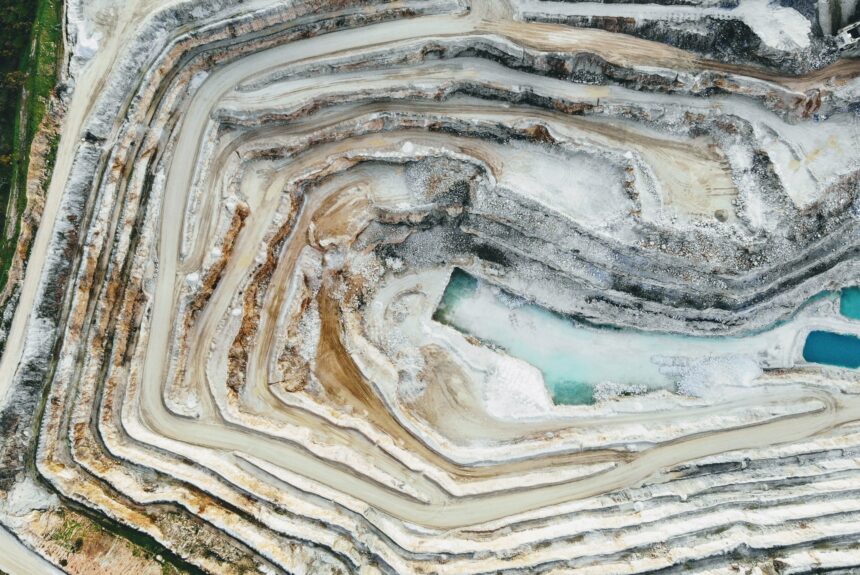Critical minerals, which include metals such as aluminum, cobalt, and graphite, are the backbone of modern life and power cell phones, electronics, renewable energy sources, and even fighter jets. While important, the supply chain of critical minerals is predominantly controlled by China. Nick Loris recently testified before the Subcommittee on Oversight and Investigations of the House Committee on Natural Resources to explain why lawmakers must diversify America’s supply chain for critical minerals away from China.
As Loris laid out in his written testimony, critical minerals are just that—critical:
“They are the foundation that empowers companies to build, manufacture and innovate. These minerals are necessary inputs to produce affordable energy, stable food supplies, defense technologies, and advancements in modern medicine. In short, critical minerals are the foundation for the products to keep Americans and people around the world safe, healthy, and happy.”
The world is currently beholden to China for much of the mining and processing of these minerals. According to research from the Brookings Institution, China controls 66 percent of the global smelting and refining for aluminum, 80 percent of lithium refining capacity, and 66 percent of global cobalt refining capacity. Most critical mineral prices have risen over the past decade, which could hinder global clean energy goals and jeopardize America’s economic competitiveness.
As more companies look to scale up renewable energy development, having a secure supply of these minerals will be essential. Analysis from the International Energy Agency (IEA) estimates that the demand for critical minerals will need to increase six-fold by 2040 in order to meet ambitious net-zero targets by midcentury. Under IEA’s less ambitious Sustainable Development Scenario (SDS), which is the trajectory of clean energy needed to meet the Paris Climate Agreement targets, critical mineral growth would need to quadruple.
>>>>READ: Greenland’s Rare Earths Could Be Key to Securing American Innovation
Clean energy targets aside, critical mineral mining in areas like the Democratic Republic of Congo—which supplies 75% of the world’s cobalt—is rife with human rights abuses. According to Loris’ testimony:
“Harvard fellow Siddharth Kara has extensively documented the horrors and abuses of artisanal mining, or digging by hand, in the DRC. Having visited and researched the practices, Kara reports that more than 35,000 child laborers are digging the cobalt out by hand while breathing in toxic fumes and dust. They risk being buried alive by a collapsing tunnel, yet earn only a dollar or two per day.”
There are better ways to mine and process critical minerals in a way that protects the environment and workers, most of which can happen in the United States and allied countries. Thankfully, there is growing private sector interest to increase mining in the United States.
There are several steps that lawmakers can take to reduce barriers for these companies, the most obvious of which is modernizing permitting. The process to cite and receive a permit for key energy and mining has become more inefficient and cumbersome over time. Some studies indicate that it can take as long as 10 years for a mine to receive a permit to get built in the United States. In Australia and Canada however, this process takes an average of only two years to complete. Importantly, modernizing permitting is not an excuse to implement lax environmental standards. Instead, it is meant to provide regulatory efficiency to unleash private sector production.
>>>>READ: Permitting Reform is Starting to Become a Bipartisan Priority
Loris laid out several other steps that policymakers can take to bolster our supply chain of critical minerals, which include:
- Continue research and development for critical minerals recycling that can turn mine waste into useful products and provide research and development support for developing substitutes for critical minerals;
- Maintain openness to alternative mining sources like deep seabed mining; and
- Work with the private sector to maximize the efficiency of money allocated for research, development, and demonstration included in the Infrastructure Investment and Jobs Act (IIJA).
As the United States looks to scale up its production of clean energy and maintain its economic competitiveness, establishing a secure supply chain of critical minerals will be crucial to meeting these goals. By modernizing our permitting process, investing in emerging technologies, and working with our allies the United States can strengthen our supply of critical minerals.
The views and opinions expressed are those of the author’s and do not necessarily reflect the official policy or position of C3.
